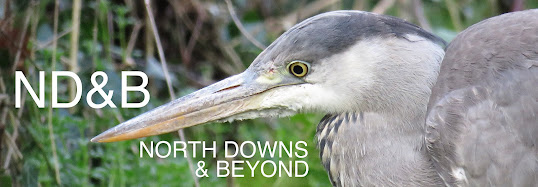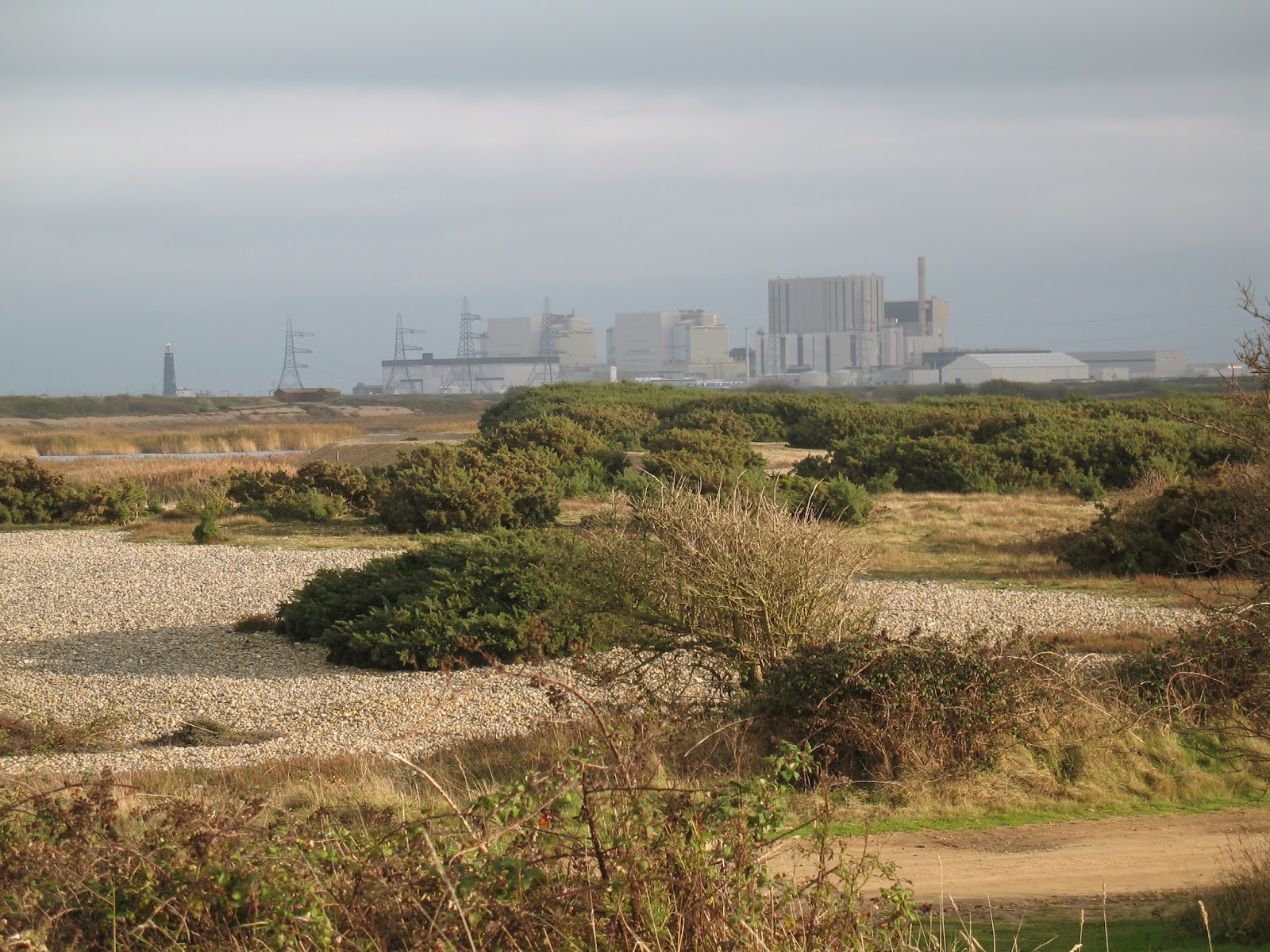Where once were terns
I don't know what has sparked it off, but a number of birders on social media have voiced their dissatisfaction about the way in which certain organisations are managing nature reserves. Along with my thoughts about the Surrey Wildlife Trust's custodianship of Holmethorpe (see last post), there have been missiles lobbed at the Kent Wildlife Trust (Oare Marshes) and the RSPB (Dungeness). I can add my two-pennies about the latter...
The reserve at Dungeness has come on an awful long way since my first visit in 1976. There has been much beneficial habitat creation, with 'new' reed beds that now support Bitterns, Marsh Harriers and Bearded Tits, and a mosaic of water bodies that are excellent for wildlife beyond birds. The visitor centre, when it was opened, was a massive step up from the wooden hut that used to stand there. And where there was just the one hide, at least nine are now scattered across the reserve. So, what's not to like?
If I were being uncharitable, things seemed to have stalled several years ago. I started to notice that the upkeep of the hides had been allowed to slip. Slats would become un-openable. Holes in the floor or side walls appeared, would remain, and, without remedial work, became larger. After a while whole sections would be cordoned off, like a police crime scene - for weeks, sometimes months at times. COVID lockdown closed the reserve (understandably), and, to the uninitiated like me, it would have been prime time to repair the infrastructure of the reserve - after all, there was no public to get in the way. Instead, nothing appeared to have been done.
The reserve (particularly Burrowes) once boasted a thriving tern colony. The islands used to be home to hundreds of nesting pairs, mostly Common, quite a few Sandwich, and, now and then a pair of two of Roseate. Terns are fickle, and at times large numbers would desert Dungeness for nearly Rye - but - even in these fallow years, a decent number of pairs would remain. However, in recent times the water levels on Burrowes has risen, and the islands that the terns used to nest on sent underwater. Could the water level have been better managed? A few tern rafts were created as mitigation, and towed out onto Burrowes (and Dengemarsh). These did attract a few pairs of Common Terns, but so did they entice Herring Gulls. Unchecked, the gulls hatched their young and then walked across the rafts to pick off each and every tern chick. It seemed to me (rightly or wrongly) that there was a shrug of the shoulders from the RSPB as to the fate of the terns, as if there was nothing that could be done about the situation. I'm pretty sure there could have been.
The hayfields (another good bit of habitat creation) never seems to be in the best of conditions, and any wader that is encouraged to breed have to then watch their offspring run the gauntlet of Carrion Crows, Foxes and Badgers. I know what the reserve wardens of the past would have done. Prick the gulls eggs and shoot the crows and foxes. Maybe this is archaic reserve management in 2021, but there must be solutions to such problems - or, at least, effort put into trying to save the chicks. After all, isn't that what managing a reserve is all about? Does the raft design need a revamp? Is its positioning a problem? What about the timing of its launch?
Another modern phenomena at Dungeness are the obscene (and I use that word correctly) number of Cormorants that haunt the reserve. Literally thousands. They have taken over the islands that are festooned with dead trees, nesting in their hundreds. Vast rafts gather to feed and so out-fish and out-compete the ducks and egrets. Is it the case that a Cormorant is worth as much as a Little Egret, that a Carrion Crow is worth as much as a Lapwing and that a Herring Gull is worth as much as a Common Tern? Can the Cormorant nesting 'trees' be removed?
So why does the RSPB manage reserves? On the RSPB website they state that :
Reserves are at the heart of what we do. They're vital to our conservation work and priceless spaces for everyone to get close to nature.


Comments
But surely predator control is part and parcel of managing a reserve. If you just let nature take its course, you'll end up with far less biodiversity. To take an obvious example, there are millions of foxes so if one is threatening the eggs of a rare ground-nesting bird I think that it is entirely justified to control it.
There is also a complete absence of logic in only controling pests when they are not breeding. Either you are trying to reduce the numbers or you are not. Baby rats grow up into fully grown rats. It sounds as if sentimentality is getting in the way of conservation priorities. Of course it should be done as humanely as possible.
My main gripe with the RSPB is that I think they have forgotten that many of us used to enjoy 'Birds' magazine. The new magazine hardly features birds at all. Ken Noble
I have been a member of the RSPB for 45 years, and although it's not perfect I would rather continue to support them for their protection of all wildlife ( Nature's Home replacing Birds magazine ). This is paramount to me, and not necessarily my birdied aspirations.
Best wishes
Kevin Duvall
I think that the RSPB probably need to be conserving habitat rather than focusing entirely on birds. But I sometimes feel that they've almost forgotten about birds. Nature's home is a sort of quick squint at random aspects of the natural world - mostly what will attract the most interest. But I do accept that maintaining the interest of only casually interested punters is unavoidable if they want to flourish. I guess that they have to try to be all things to all people.